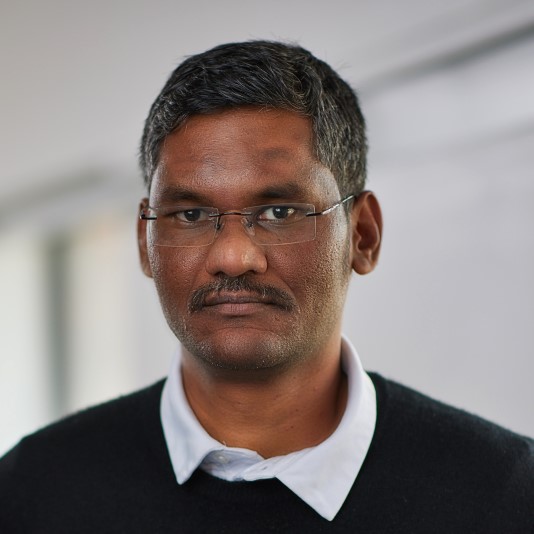Executive MBA (London) alumna Ola Kotun's career has been anything but conventional. It's a story of how a nurse with a vision embarked on a continuous journey of learning and discovery to become a leader in healthcare.
Transformative Insights: Reflecting on the Leadership module
Our Executive MBA participants share their insights from the Leadership module, reflecting on how the module has impacted their understanding and approach to leadership.
Suhas Nehete

I always believed I had sufficient expertise in technical leadership acquired through professional experience. However, within the first couple of days of studying the Leadership module at Warwick Business School (WBS), a profound revelation unfolded. It became evident that my perceptions were inaccurate, as leadership entails more than managing people, developing vision, and making decisions, and being charismatic and influential. It extends well beyond, encompassing a much broader spectrum of constant juggling amongst different paradoxes to get the desired outcome, the ability to switch between leader and follower seamlessly, and the list goes on.
In the past, I often struggled to comprehend the decisions made by senior leadership in workplaces from time to time, and I’m sure many of you have witnessed similar situations. This is where the leadership module at WBS steps in – it’s a transformative journey, offering fresh perspectives and deeper insights. It’s not just about understanding those decisions; it’s about connecting them to the different paradoxes that leaders often face. These insights are valuable, shaping not just my professional path, but also the decisions I make in my personal life.
The module is not only rich with academic frameworks but also brings practicality through dissecting real-life case studies. This mix of theoretical concepts and practical examples made the learning experience incredibly enriching. One aspect that stood out was the emphasis on applying those frameworks to real-life case studies and delving into the impact of different leadership styles within the actual context, examining their effectiveness in achieving tangible outcomes.
The most exciting part of the entire module was the final assessed group assignment. In just three intense hours, we were tasked with delivering a presentation alongside a team of six, unlike other group assignments. It felt like a real-world simulation, testing our abilities under pressure like crisis management.
Dewi Ballard

One of the most impactful aspects of the Leadership module was the emphasis on self-awareness and reflection, which has led to a deeper understanding of my own strengths, weaknesses, and leadership style. This self-awareness has served as a solid foundation for personal growth and development, enabling me to identify areas for improvement and tailor my leadership approach accordingly.
Another key takeaway was the realization that leaders with proven and effective backgrounds may not always have compatible leadership styles for different contexts. It is important to ensure that there is a good fit between the leadership style and the specific leadership challenge. While effective leaders are aware of this and can adapt their approach, some factors are easier to adapt than others. As a result, I will now consider strategic, operational, and interpersonal factors before taking on future leadership challenges, as in the past I made the mistake of focusing too narrowly on operational factors.
Engaging in the various group discussions and case studies allowed me to explore different leadership scenarios and cultivate essential competencies such as communication, decision-making, and conflict resolution. Interacting with a diverse cohort of peers provided valuable perspectives and enriched my learning experience and networking skills essential for effective leadership in today's globalized world. Overall, the module has equipped me with the knowledge, skills, and confidence to navigate complex leadership challenges in both professional and personal spheres.
Nikki (Natsuki) Ohno

The Leadership module taught me that to be an effective and influential leader, you must constantly strive for a broad perspective and not be limited by self-centred thinking, such as past successes and personal strengths. Here are eight takeaways from the module that all leaders should keep in mind to be more effective:
- Know yourself. Recognise your strengths and weaknesses so that your team can support in areas where you may be weaker.
- Create a balanced team. The best way to build a high-functioning team is to consolidate people who can make effective complementary relationships. Trust and friendship will follow.
- Have the vision to empower people. Discuss how the future will differ from the present. Visionary leaders can generate positive energy and excitement.
- Create an innovative environment. There will be times when issues are ambiguous. Collaborative relationships based on trust and respect will be beneficial in encouraging an innovative team.
- Do the bad decision check. Evaluate whether your decisions are rooted in any of the five detrimental elements; Narcissism, Pride, Hubris, Favouring self and friends, and Risk Aversion (Colley and Spyridonidis, 2022, p20), and amend your approach accordingly.
- Prioritise time for informal communication. Communication can reduce anxiety. Take the time to listen and talk to people in an informal setting, which is often more effective. Even if it is difficult to see, communication will help you guide people in the same direction.
- Keep in mind that change often fails and why. Employee resistance often hinders change, and that resistance can be tangible or intangible, conscious or unconscious. Create a well-thought-out plan to avoid failure.
- Never stop learning. Keep your eyes and the door open. Encourage others to continue trying, testing, and refining to learn. This will help your organisation mobilise towards the desired outcome.
Reference:
Colley, J., & Spyridonidis, D. (2022). Conclusion: Unprecedented Leadership for Unprecedented Times.: Springer International Publishing.




 X
X Facebook
Facebook LinkedIn
LinkedIn YouTube
YouTube Instagram
Instagram Tiktok
Tiktok